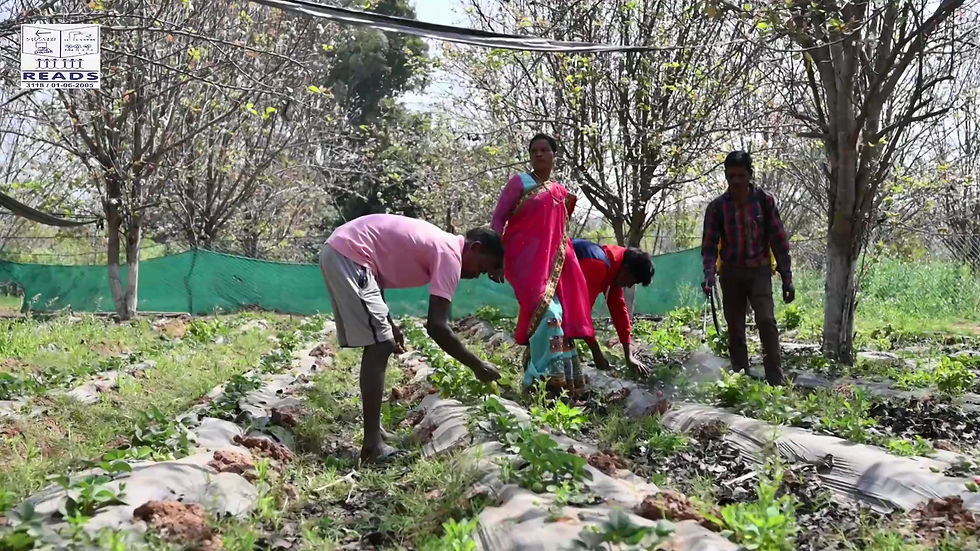
Horticulture
In horticulture, READS plays a crucial role by introducing profitable crops and supporting farmers in their cultivation. Through initiatives like establishing post-processing facilities for scented rice and cashew, READS adds value to produce, aiding in economic prosperity. Its interventions contribute to transforming the region into a hub for diverse agricultural and horticultural products, enhancing the livelihoods of small and marginal farmers.
WHAT WE DO
Horticulture, a key focus area of READS, encompasses various initiatives aimed at enhancing agricultural productivity and promoting sustainable practices in Northern Chhattisgarh. One such initiative is the WADI program, sponsored by the National Bank for Agriculture and Rural Development (NABARD).
Under the WADI program, READS implements activities aimed at tribal development, utilizing funds allocated specifically for this purpose. One of the main objectives of the program is to cultivate fruit-bearing trees on barren land owned by tribal communities. These fruit trees include a variety of species such as mango, cashew, guava, pear, and apple.
The WADI program holds significant importance as it not only contributes to the economic empowerment of tribal communities but also fosters environmental sustainability. By utilizing barren land for fruit cultivation, the program helps in reclaiming and utilizing unproductive land resources effectively.
Through the cultivation of fruit-bearing trees, the WADI program creates avenues for additional income generation for tribal households. Fruits cultivated under the program serve as valuable sources of nutrition and income for the community members. Moreover, the diversification of crops through fruit cultivation contributes to the resilience of tribal farmers against market fluctuations and crop failures.
Additionally, the WADI program promotes the adoption of agroforestry practices, which have numerous ecological benefits. Agroforestry helps in improving soil health, conserving water resources, and mitigating climate change impacts. By integrating trees into agricultural landscapes, the program enhances biodiversity and creates habitats for beneficial organisms.
READS plays a pivotal role in the successful implementation of the WADI program. It provides technical assistance, training, and support to tribal farmers throughout the process, from land preparation and planting to post-harvest management and marketing. Through capacity building initiatives, farmers are equipped with the knowledge and skills required to effectively manage fruit orchards and maximize yields.
Furthermore, READS collaborates with local stakeholders, government agencies, and other organizations to ensure the sustainability and scalability of the WADI program. By fostering partnerships and promoting community participation, READS strengthens the impact of the program and facilitates the exchange of best practices and lessons learned.
Overall, horticulture initiatives, such as the WADI program, spearheaded by READS, play a crucial role in promoting socio-economic development, environmental conservation, and resilience among tribal communities in Northern Chhattisgarh. Through the cultivation of fruit-bearing trees on barren land, these initiatives empower tribal farmers, enhance food security, and contribute to the overall well-being of the region.
